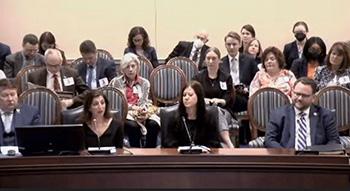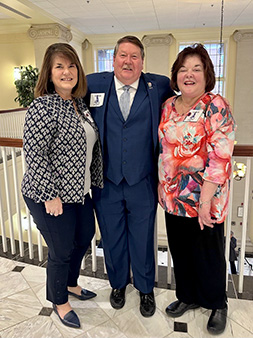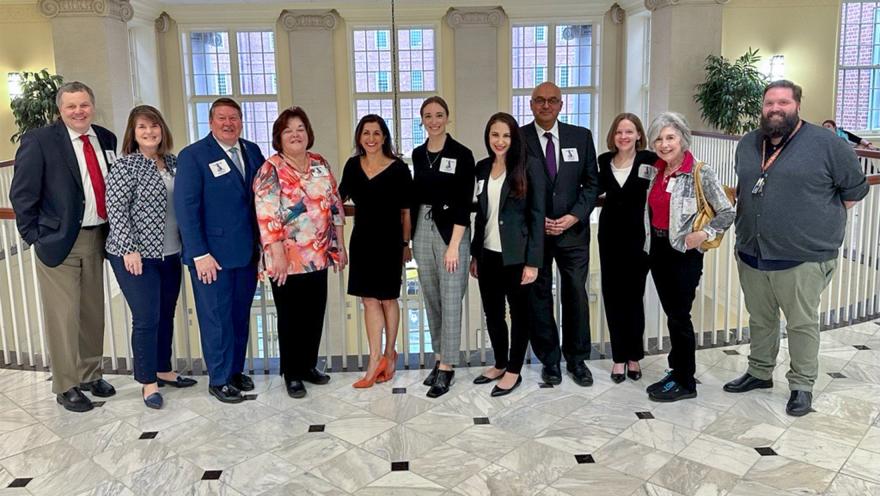The fight for the Genetic Testing Protection Act in Maryland continued Thursday with ALS Association leaders pressing the state’s House of Delegates to advance the policy. The bill would prohibit companies that offer life insurance and disability insurance in that state from using the results of genetic testing to deny coverage or engage in price discrimination. Similar bills have been proposed in New York, Illinois and Tennessee.
Research shows that fear of discrimination prevents people from pursuing genetic testing.
Calaneet Balas, president and CEO of The ALS Association pressed upon lawmakers the importance of genetic testing for people living with ALS.
“Our goal is to make ALS livable until we can cure it,” she said.
She pointed to the rising importance of gene therapies as a potential way to treat and cure ALS.

“We are seeing clinical trials for gene therapies to treat familial ALS across the country, including here in Maryland at Johns Hopkins. We also know that the more people participate in genetic testing, the more companies are incentivized to invest in gene therapy trials for a variety of rare diseases.”
Dr. Neil Thakur, the Association’s chief mission officer pointed to research being done in Maryland on a treatment that could prevent ALS from developing in patients with a known genetic mutation connected to the disease – a mutation that could only be identified through genetic testing.

“The Genetic Testing Protection Act will help allay this fear of discrimination by putting protections in place for accessing life, long-term care, and disability insurance by people who have undergone genetic testing, requested genetic testing, or received genetic test results. Such protections will not only benefit those living in the state, but through the amazing science being done in Maryland, bring life-changing new genetic therapies to everyone who needs them faster,” he added.
Association leaders and ALS advocates previously testified on behalf of a companion bill in the Maryland Senate.
View the full House hearing here (fast forward to 1:33:20 to view the panel’s testimony).

